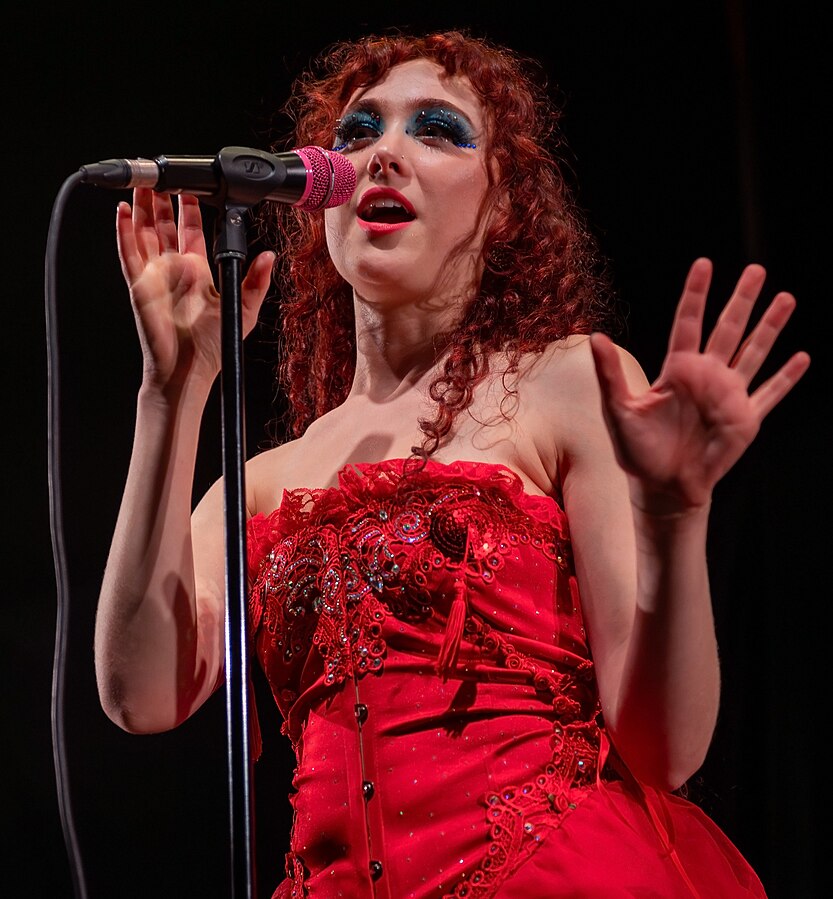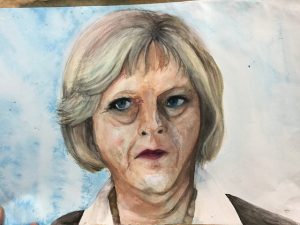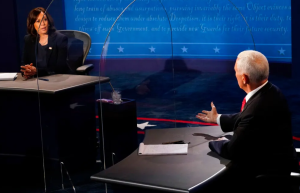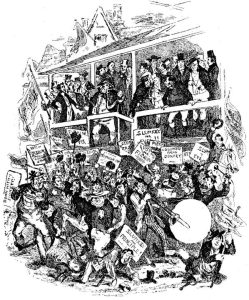PRESSURE POINT – Pop politics: who cares who they vote for?
by Albert Genower | October 10, 2024

With the US election drawing ever nearer, increasing attention is being focused on something that is seemingly becoming an integral part of elections: political endorsements by celebrities. Endorsements like these have been a feature of American elections for over a century—look no further than Babe Ruth’s undying support of 28th President Woodrow Wilson in the 1910s and 1920s. What has changed is expectation. Once an oddity or the prerogative of any individual celebrity, in recent years fans of actors, singers, and athletes have come to demand party political statements from those they admire.
A lot of people who don’t like celebrity political endorsements take issue with the celebrities themselves—arguing that their job is to entertain, not preach—but celebrities are participants in democracy like anybody else. Besides, plenty of art made by highly public figures is itself political. This is fine, and probably a good thing. What is less bearable is the belief that people are in fact owed a political endorsement by any given celebrity. This concept has most recently reared its ugly head into the public consciousness with Chappell Roan’s ‘controversial’ (by which I mean very milquetoast) political statements.
Unless someone is genuinely passionate about either candidate, celebrity political endorsements are a no-win situation for many public figures: either they’re chastised as apolitical and beneficiaries of the status quo, or they become flag-bearers of something they’re not really qualified to speak on. It’s not really an issue for the mass of public figures whose political affiliations are plainly pretty aligned with that of their fans. I doubt there were many Democrats sitting mouth-agape when Kid Rock performed at the RNC earlier this year, or many Republicans burning their Lil Jon records. But if a public figure isn’t so enthused about either candidate, it’s not so easy.
Let’s get back to Chappell Roan. She is constantly in headlines lately and mostly for some ‘controversy’ or another. First it was the constant moaning and whining about how hard it is to be extremely rich and successful having chased it for years at the expense of all else (before anyone starts, it was just as insufferable when Kurt Cobain did this 35 years ago). Then it was her cancelling gigs for the VMAs and then just because she didn’t feel up to it, stiffing her fans out of potentially thousands in hotels and travel costs even once refunds had been issued. Then it was something about her shouting at a photographer which I am not interested in deciphering, and then it was her refusal to endorse a political candidate that drew the ire of the perpetually online.
A few weeks ago, Roan said she doesn’t feel pressured to make a definitive presidential endorsement because she sees problems on both sides, but that transgender rights are the most important issue to her. It requires such a small amount of critical thinking to see which side that places her on, but she still had to issue a statement clarifying that she wasn’t a Trump supporter. “If trans rights are what is most important to you there is a clear choice. Saying otherwise says to me that she is really not paying attention,” says one user on r/Fauxmoi (a forum full of people that genuinely sound like right-wing caricatures of liberals), either being deliberately obtuse or genuinely stupid. “The curtains were blue because they were blue!” huffed masses of secondary schoolers who never moved on from YA fiction, unaware that their refusal to read even between the most boldly drawn lines would lead them to a lifetime of bafflement.
Beneath the mountain of needless criticism from people whose lives revolve around what a singer told them to think, Roan made an extremely undervalued point: that people should “vote small”—vote for their local areas and cities. Gerrymandering, zoning, policing—in the US, these are all important things that take place at the local level that people ought to pay attention to and do, on the surface, proclaim to care about. In Britain, people under 25 are the demographic that vote the least, but the one considered the most ‘politically active’, surely in part because they fall into the trap of useless slacktivism like badgering celebrities about their vote instead of paying attention to their own backyards. It’s no different to the self-indulgent drivel that Russell Brand spewed a decade ago, a man whose only ‘revolution’ has been conveniently finding Christ after a slew of rape allegations.
As well as voting locally, Roan’s other main point was to encourage her fans to make their own minds up. This seems to be one of the better ways for celebrities to swerve the minefield of politics. As much as encouraging people to vote is a good point, it is just about the most boring political act one can take. Though it didn’t do much to stop the tide already coming her way as part of a bigger late-summer wave of criticism, this normally seems to work. It gives the illusion of taking a stand without actually having to stand for anything, a bit like all that shit John Lennon and Yoko Ono used to prat about doing in the 1970s.
My favourite celebrity political commentary (and I acknowledge that I’m really weird for having a favourite) comes courtesy of rapper DMX. I know nothing about DMX apart from ‘X ‘Gon Give It To Ya’ and his insightful comments on politics from 2008, but those two things are enough to give me a soft spot for him. Among some language I can’t repeat here, he ruminates: “What the fuck is a Barack?” He later ponders: “Barack Obama? What the fuck man? Is he serious? That ain’t his fucking name.” This is followed by some insightful commentary on the outgoing Republican president George Bush: “He could barely speak! He could barely fucking speak!” He couldn’t give a fuck and he’s owning it. I would have loved to have seen someone who feels owed political statements by entertainers try to explain why to him.
Those who mew and cry for celebrity political endorsements are often the same people who sit, arms folded, chastising others for being too obsessed with celebrity, seemingly not realising the hypocrisy of their own position. These people are not interested in politics or policy, they’re interested in their ‘team’ winning in the cup final of the election. Besides, if anyone casts their vote on the basis of a celebrity endorsement, they probably are not equipped to have a well-informed political voice anyway.
Paying too much attention to what celebrities think of politics is how we got people like Governor Arnold Schwarzenegger, Senator Manny Pacquiao, and President Donald Trump—people we’d all be better off without. It’s almost as if being a good bodybuilder, action star, boxer, reality show host, or heir to the family real estate business has no bearing whatsoever on someone’s ability to run a state. ∎
Words by Albert Genower. Image courtesy of Justin Higuchi.




